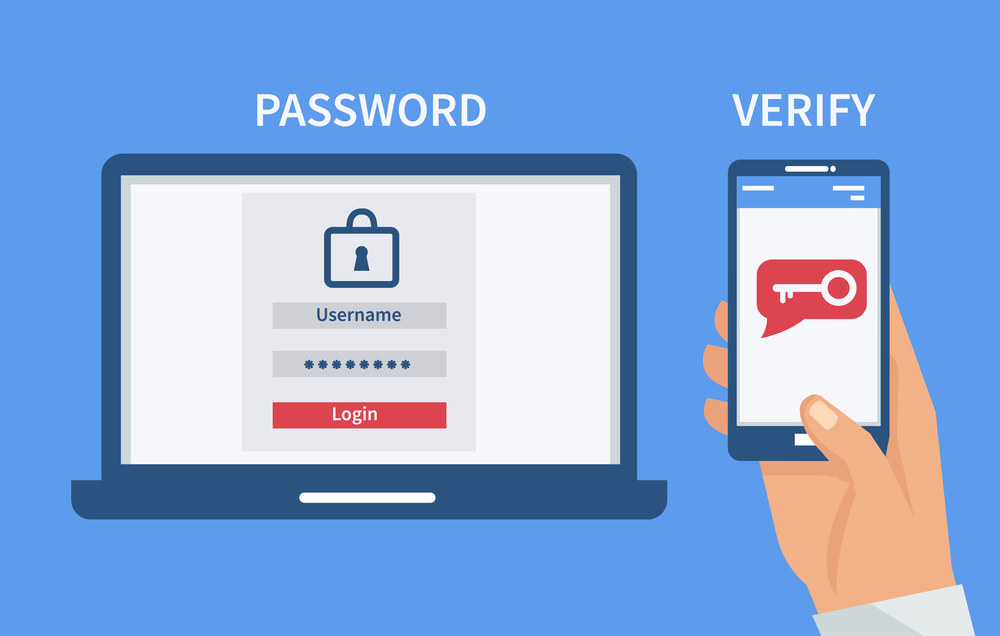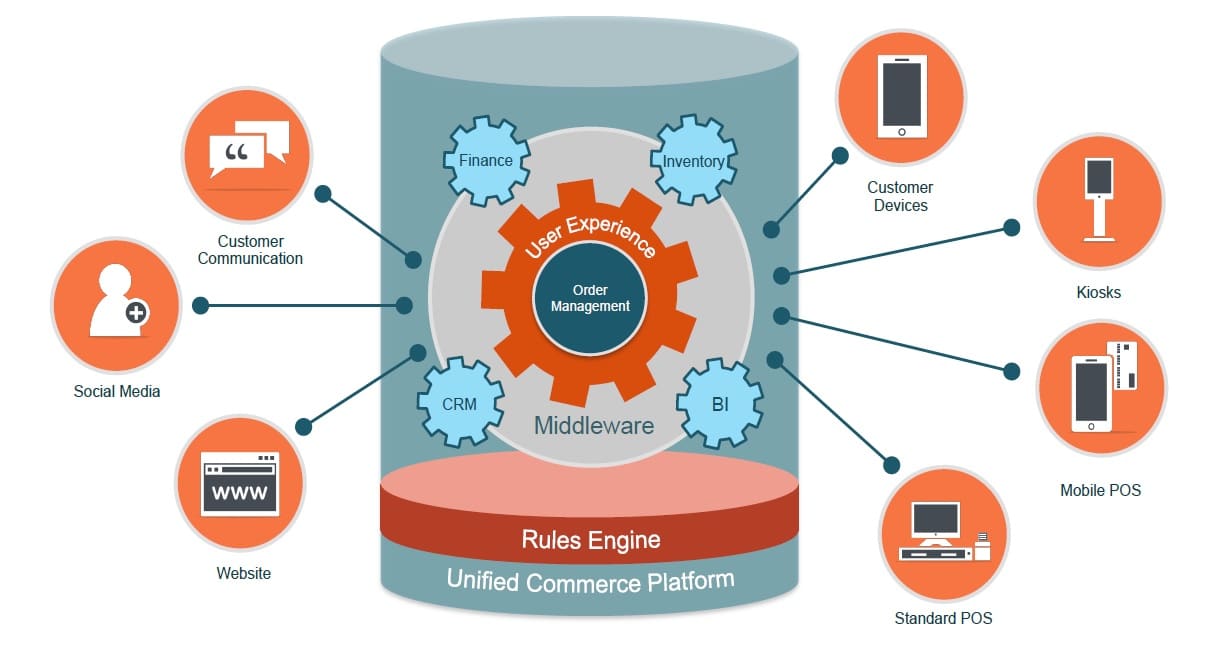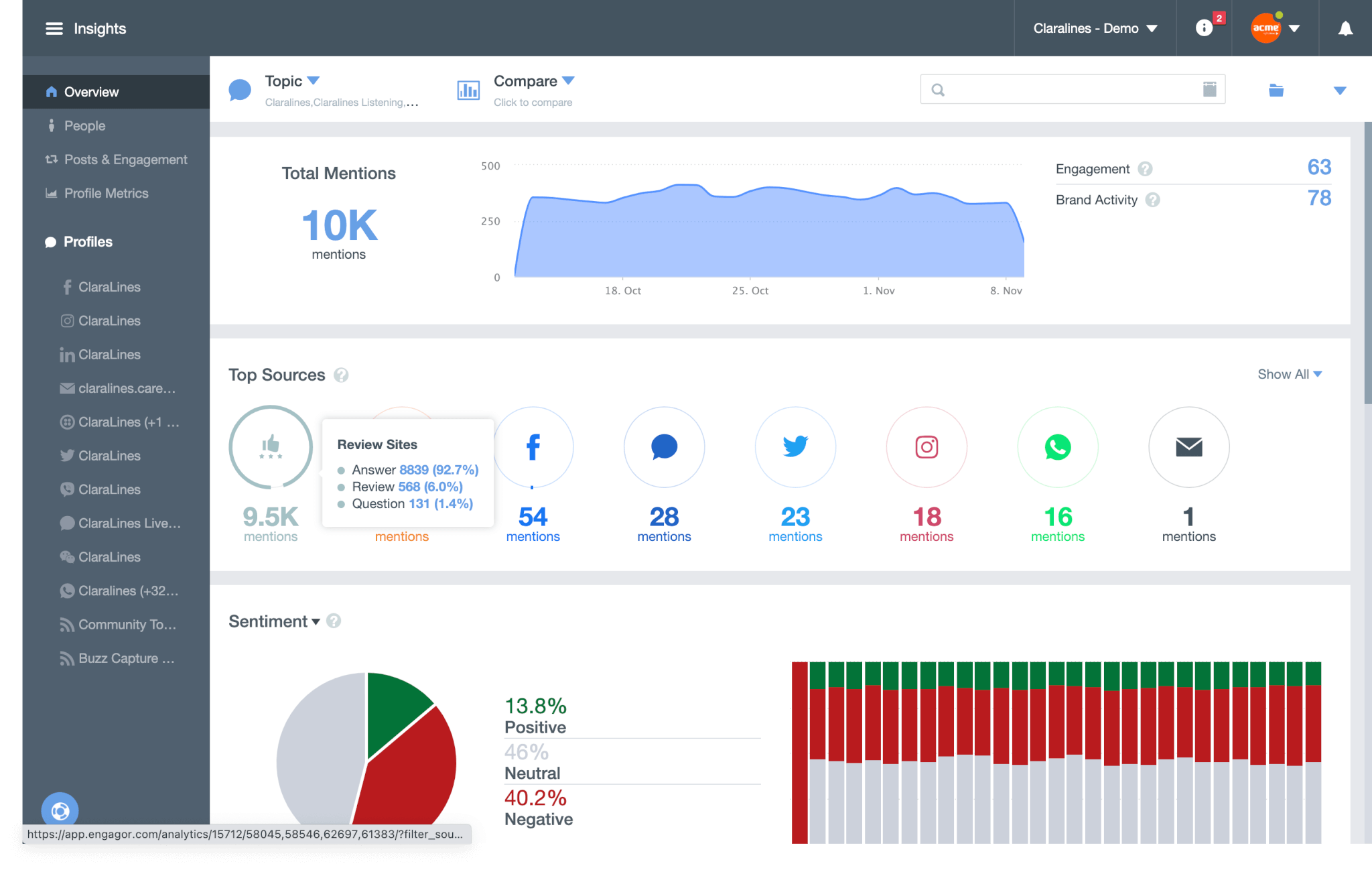- Introduction
- Why Scalability Matters
- Advanced Security Protocols
- Customization and Integration
- Omnichannel Presence
- Data-Driven Insights and Analytics
- Conclusion
- Frequently Asked Questions (FAQs)
Table of Contents
Must-Have Features of Enterprise Ecommerce Solutions

Introduction
Be it for gaming, managing daily tasks, working out, shopping, entertainment, name anything and you will find an app related to that specific task. We love everything to be ready and organized and served to us sometimes on a platter too!
And you think that your employees will not love the concept of having an application and their daily tasks organized so that they can easily focus on more important tasks like generating more revenues or onboarding a few clients rather than wasting precious time on some boring repetitive administrative chores?
Once you introduce an enterprise e-commerce solution, you will open the door to opportunities for your business as the business processes will be streamlined; it will enhance the overall user experience and, most importantly, give you an edge over your competitors which is crucial in today’s fast paced digital economy.
If implemented correctly, e-commerce development solutions will become the backbone of your online presence.
We know that little information was not enough for you, and you want to learn more about the features you need in your enterprise e-commerce solution.
So, without any delay, let’s dive in.
Why Scalability Matters
A scalable enterprise e-commerce solution infrastructure allows businesses to manage growth efficiently. Without it, enterprises risk slow page load times, transaction failures, and a compromised user experience, reducing customer satisfaction and losing sales.
In the digital age, where consumer loyalty is hard-fought and easily lost, these risks are unacceptable. Scalability ensures that as the volume of data, number of transactions, and traffic on the website grows, the platform can handle it all smoothly, maintaining fast response times and high levels of user satisfaction.
Implementing Scalable Solutions: Cloud-Based Platforms

One of the most effective ways to achieve scalability is cloud-based enterprise e-commerce solution.
Unlike traditional on-premises infrastructures that require businesses to predict their future needs and invest upfront in physical servers and hardware, cloud services operate on a pay-as-you-go model, offering flexibility and scalability.
This means resources can be scaled up or down as needed using customized e-commerce solutions, ensuring enterprises only pay for what they use while also handling peak demands efficiently.
Cloud solutions offer several key advantages for scalable infrastructure:
Elasticity
Cloud platforms can automatically adjust the computational resources allocated to an application according to its current need, ensuring that enterprise e-commerce solution remain responsive under varying loads.
Global Reach

Cloud services often have a global network of data centers, which helps deliver content faster to users worldwide by storing it closer to the end-users. Thus, cloud services enhance the shopping experience with custom e-commerce solutions.
Disaster Recovery and High Availability
The distributed nature of cloud computing means that data can be backed up in multiple locations, ensuring that the platform can recover quickly and minimize downtime in the event of a hardware failure or other issues.
Innovation and Integration

Cloud-based custom e-commerce solutions are typically more agile when integrated with other business tools and services. This helps enterprises innovate and adopt new functionalities and technologies more easily, staying ahead in the competitive digital marketplace.
Advanced Security Protocols
In today’s digital commerce environment, safeguarding sensitive customer information is not merely an option—it’s an imperative. As enterprise ecommerce solutions grow in complexity and scale, the volume of personal and financial data they handle increases exponentially.
This trove of data, if inadequately protected, can become a prime target for cybercriminals. Such breaches result in immediate financial losses and legal consequences and can also inflict long-term damage on a brand's reputation and customer trust.
Furthermore, regulatory compliance mandates stringent data protection measures, such as the General Data Protection Regulation (GDPR) in Europe and the California Consumer Privacy Act (CCPA) in the United States.
SSL Certificates

Secure Sockets Layer (SSL) certificates are at the frontline of these security protocols in enterprise e-commerce solution.
SSL certificates encrypt the data in transit between a customer’s browser and the ecommerce server, ensuring that malicious actors do not intercept sensitive information like credit card numbers, login details, and personal information. This encryption is crucial for securing online transactions.
It is visibly indicated by the "HTTPS" prefix in the web address, along with a padlock symbol in the browser bar, signifying a secure connection. This protects data and boosts consumer confidence in the security of their transactions.
Two-Factor Authentication (2FA)

Elevating security measures beyond traditional password protection, two-factor authentication (2FA) has become a critical feature for safeguarding access to customer and administrative accounts in customized e-commerce solutions.
2FA requires users to verify their identity through two separate methods — typically, something they know (like a password) and something they have (such as a code sent to their phone or email). This dual layer of verification significantly minimizes the risk of unauthorized account access, adding a barricade against potential security breaches.
PCI DSS Compliance
Adhering to the Payment Card Industry Data Security Standard (PCI DSS) is non-negotiable for enterprise e-commerce solution.
Established to protect credit card data and transactions, PCI DSS compliance ensures that businesses follow standards for securing payment data.
This includes maintaining a secure network, protecting cardholder data, maintaining a vulnerability management program, implementing strong access control measures, regularly monitoring and testing networks, and maintaining an information security policy in the e-commerce development solutions.
Compliance is assessed annually, and failure to comply can result in serious penalties, including fines and loss of the ability to process credit card payments.
Customization and Integration

Customization options in enterprise e-commerce solution are essential for businesses striving to create tailored experiences and operational workflows that match their unique needs and objectives.
These options allow companies to intricately craft an online storefront that resonates with their brand identity and appeals directly to their target audience, enhancing user engagement and loyalty.
Customization in enterprise e-commerce solutions can range from aesthetic elements, such as layout changes and color schemes, to functional aspects, like custom checkout processes, unique promotional tactics, and personalized product recommendations based on user behavior analysis.
Omnichannel Presence

Offering a cohesive customer experience across all channels is crucial in today's retail landscape, which encompasses everything from online marketplaces, social media, mobile apps, brick-and-mortar stores, and call centers.
This uniformity ensures that customers receive the same level of service, product availability, pricing, and brand messaging regardless of how or where they engage with the business.
Consistency builds trust and reliability in the brand, encourages customer loyalty, and enhances overall satisfaction.
A cohesive experience in enterprise e-commerce solution also simplifies the consumer's journey, as they can switch between channels fluidly without discrepancies or needing to reorient themselves at each touchpoint.
Strategies for Integrating Online and Offline Touchpoints to Enhance the Customer Journey
Integrating online and offline touchpoints is crucial for a cohesive customer journey. Here are effective strategies to achieve a seamless, engaging experience:
Consistent Branding Across All Channels
 Ensure your brand’s style, voice, and messaging are uniform across all platforms in your customized e-commerce solutions.
Ensure your brand’s style, voice, and messaging are uniform across all platforms in your customized e-commerce solutions.
This consistency helps reinforce brand identity and improves brand recall. Customers should feel that whether they visit a store, browse the website, or check the brand's social media, they are interacting with the same entity.
Unified Commerce System

Implementing technology solutions that integrate sales and inventory systems across physical and digital channels in enterprise e-commerce solution creates a seamless backend operation that supports a fluid front-end customer experience.
For example, when inventory is integrated, a customer can view real-time stock levels, whether online or in a physical store, or order an out-of-stock item online right from the store.
Personalized Customer Experience
Use data analytics in your e-commerce development solutions to provide personalized experiences across channels. For instance, a customer who abandoned a cart online can be sent a reminder via email or see a personalized ad on social media.
Equally, in-store employees can access a customer’s purchase history online to recommend products more effectively in enterprise e-commerce solution.
Click-and-Collect Services

Offering a click-and-collect service where customers purchase an item online and pick it up in a store is a great way to bridge the gap between online and offline. This service's customized e-commerce solutions increase convenience and drive foot traffic to physical stores, potentially increasing sales.
Mobile Integration
Since mobile devices often accompany customers in physical stores, integrating mobile with offline experiences can enhance the shopping experience.
This can include sending personalized discount coupons to a customer’s mobile when they enter a store or providing QR codes beside products that link to online reviews and additional product information in your enterprise e-commerce solution.
Customer Service Consistency

Ensure that customer service is consistently excellent across all channels in enterprise e-commerce solution, enabling customers to receive the same service quality whether online, on the phone, or in a brick-and-mortar location.
This might involve training all staff on product knowledge and customer handling and implementing a standard CRM system accessible to employees across all channels.
Data-Driven Insights and Analytics

Analytics is critical in modern business strategy, transforming vast data into actionable insights.
This deep understanding enables companies to craft highly targeted marketing campaigns in e-commerce development solutions that resonate with individual customers or specific customer segments, significantly improving engagement rates, customer satisfaction, and loyalty.
Tools and Features That Offer Deep Insights into Customer Behavior and Business Operations
Customer Relationship Management (CRM) Systems
CRMs are pivotal in aggregating customer interactions across all channels of custom e-commerce solutions, providing a 360-degree view of the customer.
Advanced CRM systems implemented in enterprise e-commerce solution utilize analytics to segment customers based on their behavior, predict future purchase patterns, and identify the most valuable customers for targeted marketing efforts.
Web Analytics Tools

Tools like Google Analytics provide in-depth insights into website visitor behavior, such as pages visited, time spent on the site, and conversion paths.
These tools in enterprise e-commerce solution help identify content that resonates with audiences, optimize user experience, and improve website conversion rates.
Business Intelligence (BI) Platforms
BI platforms such as Tableau or Power BI enable businesses to visualize complex data from various sources intuitively.
These platforms support strategic decision-making for better e-commerce development solutions by offering insights into market trends, operational performance, and competitive analysis.
Social Media Analytics

Integrated social media analytics in your enterprise e-commerce solution offer insights into post engagement, audience demographics, and optimal posting times. Additionally, social listening tools can analyze sentiment and trends on social media, providing valuable feedback on public perception and emerging market needs.
Predictive Analytics
Leveraging machine learning and AI, predictive analytics tools forecast future trends based on historical data in enterprise e-commerce solution.
This can include predicting customer churn, identifying potential supply chain disruptions, or forecasting market demand for products, enabling proactive business strategies.
Conclusion
Congratulations! You have made it so far in this article. We hope that in your next enterprise e-commerce solution, you will surely implement the above-discussed, not-so-unique yet most important features to make your custom e-commerce solution a perfect asset.
The right e-commerce development solution acts as a mechanism for smoother organizational operations. It allows you to scale up your business, adapt according to market changes, and increase your reach to new prospects.
By utilizing data analytics, prioritizing and personalizing customers’ experiences, implementing robust security measures, and considering every necessary factor for scalability, you can introduce the best customized e-commerce solution for your organization’s growth.
Frequently Asked Questions (FAQs)
How Does Scalability Impact the Success of an Enterprise E-commerce Sotution?
Scalability is critical in enterprise e-commerce solution to accommodate growth without disrupting existing operations. It allows a business to expand its product offerings, handle a larger volume of orders, and maintain site performance during traffic surges.
An enterprise e-commerce solution must be agile enough to grow with your business needs, helping you avoid the costs and challenges associated with migrating to a more robust platform later on.
Why Is Omnichannel Integration Important for Enterprise E-commerce Solution’s Success?
Omnichannel integration ensures that customers receive a cohesive shopping experience, whether they shop online, through a mobile app, or in a physical store.
It offers consistent branding, product availability, and customer support across all platforms, which is essential to integrate in your enterprise e-commerce solution for building trust and loyalty with your customer base.
What Types of Data Analytics Should an Enterprise E-commerce Solution Provide?
An enterprise e-commerce solution should offer data analytics that track customer behavior, sales trends, inventory levels, and marketing campaign performance.
This information present within the enterprise e-commerce solution empowers businesses to make informed decisions, personalize customer interaction, forecast demand, and optimize their sales and marketing strategies effectively.
Table of Contents
- Introduction
- Why Scalability Matters
- Advanced Security Protocols
- Customization and Integration
- Omnichannel Presence
- Data-Driven Insights and Analytics
- Conclusion
- Frequently Asked Questions (FAQs)


